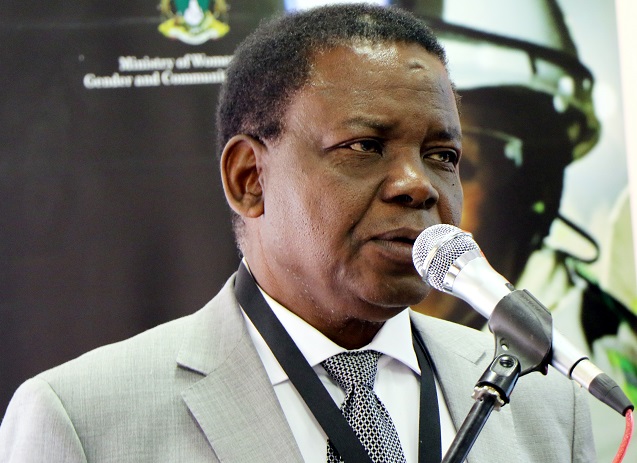Govt to dispatch team to resolve chrome disputes

Dumisani Nsingo, Senior Business Reporter
FIERCE jostling over chrome mining claims has gripped the Midlands province as calls intensify for Government to intervene and restore sanity in the sector.
With prospects for improved chrome prices on the international market, those already allocated claims risk losing them to unscrupulous individuals who have reportedly invaded the ore-rich zones ceded to Government by the biggest chrome producer, Zimasco.
Mines and Mining Development Deputy Minister Fred Moyo acknowledged the problem in an interview, saying the ministry will dispatch a team of surveyors to resolve the impasse.
“I have heard there are squabbles over mining claims. However, when the Government allocated the claims we had the Minister of Provincial Affairs (Jason Machaya) and Zimasco who held a meeting with all small-scale miners contracted with the company,” said Dep Min Moyo.
“Those who are complaining were not on the list. However, there might be some isolated cases and as such we are sending a team of surveyors and officials from Zimasco to go on the ground and rectify the situation.”
The chairperson of Zimasco tributaries in Chief Mapanzure area in Zvishavane District, Mr Emmanuel Mubobo, implored Government to intervene urgently to address the mining disputes before the issue gets out of control.
His worry stems from the prospects of losing their allocated mining fields to the new “insurgence of invaders”.
Government is re-allocating 21 170 hectares of land that once belonged to Zimasco to new smelters and small-scale miners.
“Currently the chrome sector isn’t performing well because the prices are very low. However, our major concern is that since Zimasco surrendered its idle chrome claims to the Government, we have been having people coming from various parts of the country claiming to have been allocated some of the blocks we are working on,” said Mr Mubobo.
Zimbabwe has estimated reserves of about 140 million tonnes with resources of a further one billion tonnes. Chief Mapadzure’s Chauke Ward has 12 co-operatives with six members each all of whom were working under tributary claims from Zimasco.
Mr Mubobo said the disputes should be resolved before they degenerate into serious wars as in the gold sector where people have gone to the extent of killing each other over control of mining claims.
“At a meeting we held with the Minister of Mines and Mining Development (Walter Chidhakwa) it was agreed that those that have been mining will be given right of first refusal but we are now having people coming and threatening to displace us claiming to have been allocated our blocks by Government.
“If it’s true, then it defeats the whole idea of indigenisation and empowerment policy, which stipulates that local communities should benefit from resources harnessed within their confines. We can’t have someone coming to cut the cake after having invested from the time we surveyed for the claims,” said Mr Mubobo.
He said at the time when small-scale miners were tributing claims from Zimasco their concern was solely on the low price the company offered.
“Zimasco never threatened to repossess the claims from us but we were only at logger heads over the price it paid us for the ore we delivered to them. At the time the company shut down it also allowed us to sell our ore to the markets of our choice,” said Mr Mubobo.
Miners have applauded Government for engaging Zimasco and Zimbabwe Alloys to cede part of her claims for redistribution to small scale producers.
“The issue of parceling claims hasn’t been concluded and our plea is to have those that were tributing being given right of first refusal and then we have new entrants being allocated on claims that have been worked on,” said one chrome miner.
The miners contend that the decision to allocate small ferrochrome producers claims was likely to impact negatively on the viability of small-scale miners.
Mr Mubobo attributed the sudden “chrome rush” to the anticipated chrome industry rebound due to the continued upward trend in world ferrochrome prices following years of declining returns.
“The price of chrome ore had been on the rise since November 2015. In November last year it was around $65 per tonne and in early December it rose up to $185 per tonne up until April only to drop to between $165 to $160 in May. However, prospects of it rebounding are bright and I assume that’s what making people jostle for claims,” said Mr Mubobo.
International ferrochrome prices for the fourth quarter of 2016 averaged $1,10 a pound, 12,2 percent up on $0,98 a pound during the third quarter. The increase in prices is set to continue this year owing to a rise in demand for ferrochrome by Chinese stainless steel companies.
China is the world’s largest ferrochrome consumer. High demand prospects for ferrochrome by the stainless steel industry in China could translate to a 3,1 percent growth in chrome production, from 2, 6 percent last year, according to a global chrome industry barometer.











Comments